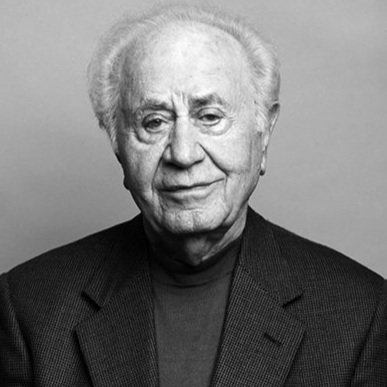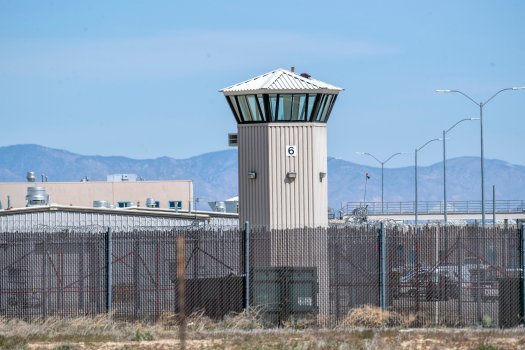Choosing a Better Tomorrow
Yesterday, January 27th, was International Holocaust Remembrance Day. As I’ve been honoring my four grandparents and dozens of aunts, uncles, and cousins who were murdered at Auschwitz, I’ve been pondering the possibility of true progress in this world. As William Harvey—the 97-year-old Holocaust survivor who I first wrote about two years ago in an essay titled One in a Million—observes, “I have lived almost an entire century and have seen tremendous progress in science, medicine, and technology, but no one has been able to discover a cure for hatred. All the good people in the world must never stay silent in the face of it.”
Bill, who has made it his life’s mission to counter hate with love, gives me hope. He is a remarkable example of someone who is spreading seeds of kindness and generosity in his efforts to create a better tomorrow.
Bill barely survived the war. Just days before liberation, weighing only 72 pounds with a foot so injured he couldn’t walk, he was left for dead in a pile of frozen corpses destined for incineration at Buchenwald concentration camp. He immigrated to America in 1946 at the age of 22, arriving at Ellis Island with only the clothes he was wearing.
Bill at twelve in Czechoslovakia
Bill’s mother, Rozali, at 20 in New York in 1902
Bill in Buchenwald at 19, thirteen days after being taken to Auschwitz
For fifty years—throughout a wildly successful career as a hairdresser to some of Hollywood’s most famous movie stars, followed by a second lucrative career in Los Angeles real estate—Bill remained silent about what had happened to him during the Holocaust. He was 71 the first time he shared his heartbreaking story in an interview conducted by the USC Shoah Foundation.
Bill in Billboard Magazine, Copyright: Wesley Mann 2015
Carol Burnett’s autograph for Bill
Bill with Carol Burnett
Since his early eighties, Bill has been a highly lauded speaker at the Museum of Tolerance in Los Angeles. In addition to bearing witness and keeping the memories of his loved ones alive, he is motivated by the powerful desire to alleviate suffering for as many people as possible. Even more than his wise words, it is the love and joy he radiates that is so inspiring. Just like my father, Bill is living proof that it’s possible to overcome any adversity and create a happy life.
In his talks, before imparting hard-earned life lessons, Bill shares his horrific history: the fatal beating of his father by Nazi soldiers; being forced to leave his home and live in a ghetto under appalling conditions; being taken to Auschwitz in a tightly packed, airless cattle car where his beloved mother was sent to the gas chamber upon arrival; and the living hell he endured as a slave laborer in Nazi concentration camps.
Bill tells his audiences that he had an emotional breakdown after liberation, “I was hospitalized for three months, crying the entire time. My tears just wouldn’t stop. I couldn’t accept that my entire life had been destroyed and that my kind and generous mother had been murdered and would never be coming back. But eventually I decided that I was too young to give up. My best revenge would be to make a success out of my life.”
Bill quickly discovered that he had to stop letting his hatred for his enemies consume him. “Nothing good is ever accomplished through hatred. By not forgiving, I was destroying my own life, not theirs. The definition of hate is the loss of love, and if you do not love, you are not living, you are merely existing. So I taught myself how to forgive and make the best of what life dealt me—to accept what I couldn’t change, and to improve everything I was able to.”
California State Prison, Los Angeles County in Lancaster, CA
(Photo by Hans Gutknecht, Los Angeles Daily News/SCNG)
After hearing Bill speak at Lancaster prison, Darryl Burnside, an inmate who’d been incarcerated for fifteen years for crimes he committed as a minor, penned a three-page letter. “After meeting Bill and hearing him speak so gracefully with such peace and poise … I began to think about myself and what I’ve become … I started reflecting on my victim and his family. I couldn’t help but feel sadness, revulsion, regret, and embarrassment at my actions.”
Before meeting Bill, Darryl said that he’d never considered forgiving himself or his stepfather, who had tortured and then killed his baby brother. He hadn’t known how to forgive his mother for staying with his stepfather afterwards, or for the ways she’d abused and neglected him throughout his entire childhood. “Hearing [Bill] speak, I saw that he was pleased as punch and at peace. I wanted to be at that point. Since then I have changed drastically…I am now dedicated to service, creating a safer community, a safer world. I wish Mr. Bill Harvey could know how much his visit has impacted me and my life, my way of thinking.” Bill and Darryl are still trading letters five years later.
Kathie Kellogg-Taxe, the clinical psychologist and docent at the Museum of Tolerance who’d helped organize Bill’s talk at the prison, explained why she thought his visit made such an impact. “Even after the long drive on one of the hottest days of the year, Bill refused to take a seat. At 92, he stood in front of the inmates—about fifty men plus their guards—speaking for a full hour. He was calm and smiling as he looked around the room. The first thing he said was, ‘You are all so handsome!’ From that moment on, the room was transformed.”
Kathie Kellogg-Taxe and Bill Harvey
Darryl's latest card to Bill
Kathie said that watching the faces of the men as they listened to Bill had a profound effect on her. “It felt as if Bill had thrown his arms around each one of them, like a devoted grandfather. He basically showered them with love, free of all judgment, criticism or fear. It was clear that he got them, and they got him. They seemed mesmerized the entire time. It was truly magical. I’ve never seen anything like it before or since.”
Bill’s embodied example of compassion and resilience gave the inmates much-needed hope. After his talk, the men asked how he’d been able to forgive and not let his terrible past destroy him. Bill responded by talking about the preciousness of life. “We all can choose to embrace our lives, look for beauty in the world, and help make life better for others, which is one of life’s greatest joys. The past is over,” Bill told them. “There is nothing to be done about it. But you can live in the present and help make a better tomorrow. It is up to you to guide your destiny. Happiness is what you make for yourself. Nobody else can make it for you.”
Before he left the prison, Bill received a letter from an inmate named Alex Morales that included these words: “I feel such honor to share this space and moment in time… I shook the hand of history, of survival, of love, of inspiration, and came away with a spark of purpose…I will carry this moment with me always, coupled with the inspiration you sparked within me.”
It is unlikely Bill will be here to observe another International Holocaust Remembrance Day. In addition to his advanced age, he recently received a terminal cancer diagnosis. “I will leave this world with no regrets,” Bill told me, “I feel very fortunate. I’ve lived a long life, helped countless people in any way I could, and always did what I felt was the right thing to do. My family is thriving, and I have a beautiful great-granddaughter named Rozali in honor of my mother. ”
Bill and his wife, June, on their wedding day, 1953
Bill, June, and their two young daughters, Wendy and Laurie
When I asked Bill what message he wants to share with the world on International Holocaust Remembrance Day, he replied, “Hatred cannot be stopped, but we can love. Always choosing love is the way to make a better tomorrow.”












